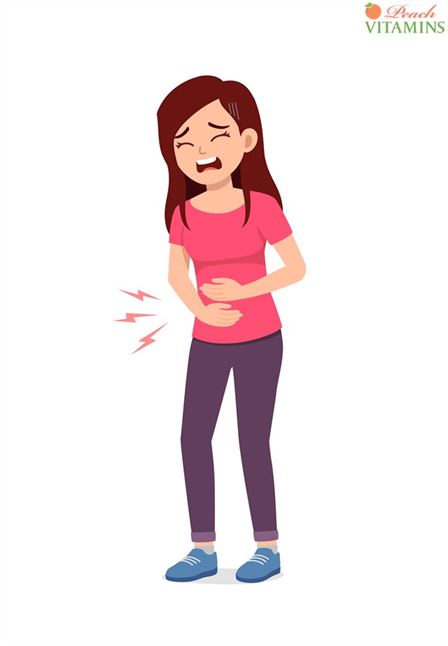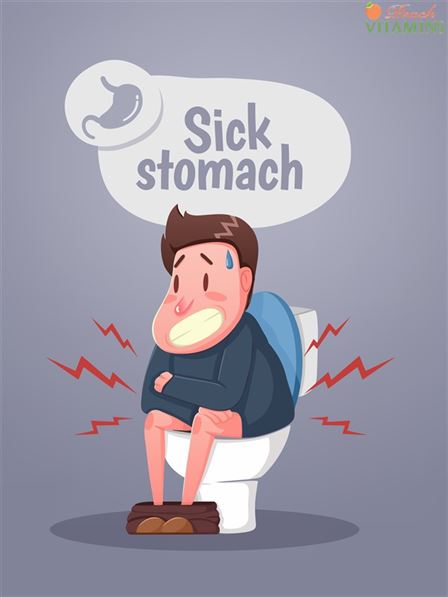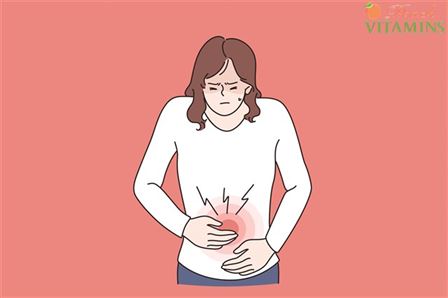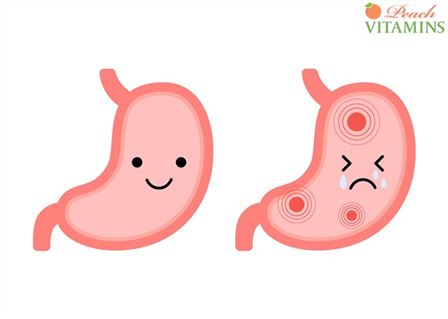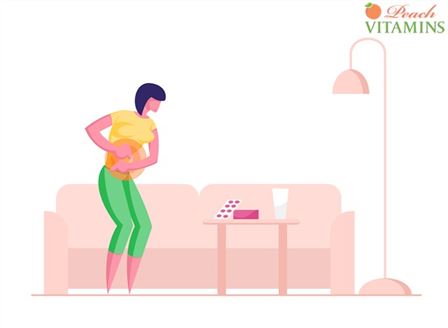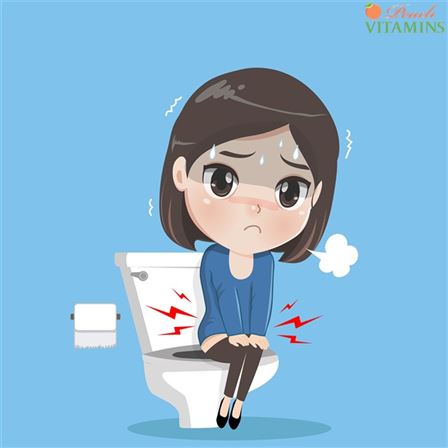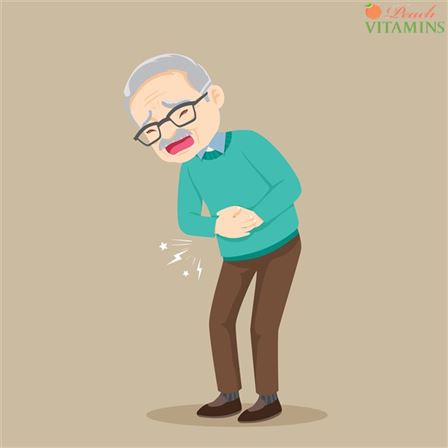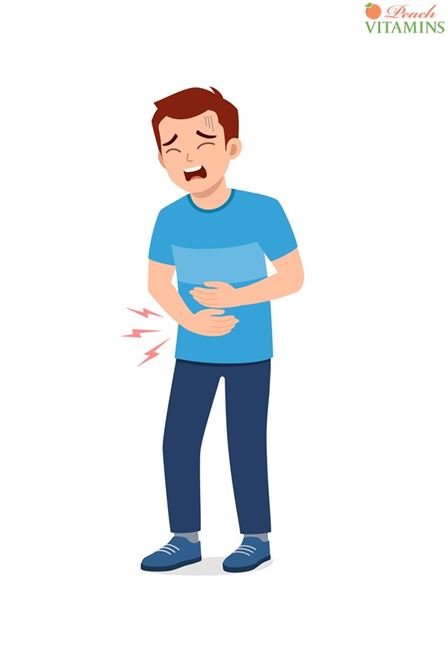Constipation is a common problem that affects millions of people worldwide. It is caused by various factors such as stress, poor eating habits, lack of exercise, medication, and other health conditions.
If you suffer from constipation, you should try to eat foods that are good for your digestive system. These foods will help you get rid of constipation naturally.
What Causes Constipation?
Constipation in adults can be due to the following reasons:
• Poor diet – Eating too much-processed food or not enough fiber-rich vegetables and fruits may cause constipation.
• Lack of physical activity – If you don’t move around often, it could lead to constipation because there isn’t any movement inside your body. It would be best if you kept moving so that all parts of your body work properly.
• Medication – Some medications like antidepressants and antihistamines can make you feel sluggish and tired. This makes you less likely to have bowel movements.
Functional constipation occurs when your bowels do not function normally, but they still pass stool regularly. The main causes include an overactive colon, slow transit time through the large intestine, and infrequent stools. In addition, some patients experience symptoms similar to those seen in irritable bowel syndrome.
Symptoms Of Functional Constipation Include:
• Hard, dry stools
• Painful defecation
• Infrequent bowel movements
Chronic functional constipation refers to chronic constipation lasting more than three months. CFC usually results from one or more underlying disorders including diabetes mellitus, hypothyroidism, neurological diseases, inflammatory bowel disease, pelvic floor dysfunction, and others.
In addition, certain drugs used to treat these illnesses also contribute to this condition. Examples include corticosteroids, anticholinergics, opiates, and tricyclic antidepressants.
Symptoms of constipation vary depending upon its severity. Mild cases usually go away without treatment within 2 weeks. Moderate cases require dietary changes and laxatives. Severe cases require medical attention. Constipation symptoms also depend on what part of the gastrointestinal tract is affected. Symptoms of constipation in different areas of the GI tract include:
• Abdominal pain
• Bloating
• Diarrhea
• Flatulence
• Nausea
Long-term constipation can result in serious complications, including hemorrhoids, anal fissures, rectal prolapse, fecal impaction, diverticulosis, and even cancer. What can make constipation worse? Many things can worsen constipation. They include:
• Stress
• Diet high in refined carbohydrates
• High-fat diets
• Alcohol consumption
• Smoking
• Sedentary lifestyle
• Certain types of medications
Diets for Constipation
A remedy for constipation depends on how severe the condition is. Most doctors recommend changing your diet if you notice frequent bouts of constipation. Here are some tips to follow while trying to treat constipation:
1) Eat plenty of fresh fruit and vegetables. Fiber helps soften stools and prevents them from becoming hard.
2) Drink lots of water. Water flushes out toxins from your intestines and keeps your stomach full.
3) Avoid caffeine. Caffeine stimulates nerves which slow down digestion.
4) Cut back on alcohol. Drinking more than two alcoholic beverages per day increases the risk of developing constipation.
5) Try taking probiotics. Probiotic supplements contain live bacteria that aid in maintaining healthy gut flora.
6) Take regular walks. Exercise improves circulation and aids in elimination.
7) Reduce intake of red meat. Red meats tend to clog up the intestinal tract.
High-Fiber Foods
Fiber-rich foods such as whole grains, fruits, legumes, nuts, seeds, and veggies provide bulk to your digestive system. These foods increase fiber content by about 10 times compared to other food items. Eating a variety of these foods will ensure adequate amounts of nutrients and minerals needed for the proper functioning of the digestive system.
The ketogenic diet has been shown to improve blood sugar control in people with type 2 diabetes. This may be because it helps reduce insulin resistance, which is often associated with this condition. It may also help prevent the development of diabetic complications.
Do Bananas Help With Constipation? Stomach Gut Food List
Plant foods rich in soluble fibers like oats, beans, peas, lentils, barley, wheat bran, applesauce, prunes, pears, bananas, carrots, broccoli, cauliflower, cabbage, celery, cucumbers, green leafy vegetables, onions, garlic, tomatoes, yogurt, milk, cheese, eggs, fish, poultry, lean beef, pork, lamb, shellfish, and tofu are beneficial in treating constipation.
Solid foods should not be eaten right before bedtime because they may cause discomfort during sleep. It’s best to eat solid foods at least three hours after going to bed to not interfere with restful sleep.
What Should You NOT Eat When Constipated? Low-Fiber Foods
Low-fiber foods include white bread, pasta, rice, potatoes, corn chips, crackers, cookies, cakes, pies, candies, ice cream, soft drinks, juices, milkshakes, fast foods, fried foods, processed meats, sausages, bacon, hot dogs, hamburgers, pizza, French fries, potato chips, pretzels, popcorn, candy bars, donuts, pastries, chocolates, and sugary cereals. Low-fiber foods do not add any nutritional value but can make bowel movements difficult or painful. They also contribute to weight gain due to their high-calorie count.
Junk foods are usually low in dietary fiber and therefore promote constipation. Junk foods are generally made using refined flour, hydrogenated fats, preservatives, artificial sweeteners, colorings, flavor enhancers, salt, and additives. The following junk foods are considered “junk” according to the American Dietetic Association:
• Fried foods
• Sugar-sweetened sodas
• White bread
• Pasta dishes
• Cookies
• Candy
Dietary Fiber Intake
The intake of fiber from all sources must total 25 grams per day for optimal health benefits. Dietary fiber includes both insoluble and soluble forms. Insoluble fiber absorbs water and bulks stool, while soluble fiber dissolves in water and binds bile acids, cholesterol, and fat, thus reducing the absorption of cholesterol and fatty substances into the body. Soluble fiber also lowers serum triglycerides and LDL levels.
Sources of fiber include fruit, vegetable, cereal grain products, legumes, nuts and seeds, and dairy products. Other good sources of fiber include brown rice, oatmeal, soybeans, flaxseed oil, pumpkin seed oil, psyllium husk powder, and guar gum.
A fiber boost can come from eating more fruits and veggies and whole grains such as quinoa, buckwheat, amaranth, wild rice, Kamut, farro, and teff. These types of grains contain a higher amount of fiber than regular white rice.
Fiber supplements are available over the counter and prescription strength. OTC supplements typically provide about 3–5 g/day of fiber. Prescription strength is often used by people who need additional amounts of fiber to treat certain conditions. A typical dose ranges between 10–20 g/day.
Daily fiber requirements vary depending on age, gender, activity level, and overall diet quality. For example, women require approximately 30% more daily fiber compared to men. Children under 12 years old require less fiber than adults. People who exercise regularly tend to consume more fiber than those who sit most of the time.
A Health Benefit of Increasing Daily Fiber Consumption
How can I stimulate my bowels? Bowel movement frequency increases when you eat more fiber. This helps prevent constipation because it reduces straining during defecation. It also decreases bloating and gas production. In addition, increased fiber consumption may reduce your risk of developing colon cancer.
Increased fiber intake has been shown to lower blood pressure and improve lipid profiles. Increased fiber intake also improves insulin sensitivity which leads to better glucose control. Healthy bowel habits have also been linked to improved immune function.
Stool consistency plays an important role in maintaining healthy bowel movements. The weight of stools should be soft or slightly formed but not hard like pellets. Hard stools indicate that there is too much fluid being absorbed through the intestinal wall. Constipation occurs when this process slows down.
Beans Are Good for Your Heart!
What is the fastest home remedy for constipation? Kidney beans and black beans contain about 5 gm each of protein, carbohydrates, vitamins, minerals, and dietary fiber. Black bean soup contains more than 20% of your daily requirement of iron.
Green beans provide a source of vitamin K as well as folate. Beans are an excellent source of magnesium, potassium, phosphorus, zinc, copper, manganese, selenium, molybdenum, chromium, nickel, iodine, and pantothenic acid.
Baked beans are another great food choice for those who suffer from chronic constipation. Baked beans are loaded with fiber, which helps keep you regular! A half-cup serving provides 3g of fiber. This is almost double what most people get on average.
Garbanzo beans have been used medicinally since ancient times. Garbanzos are rich in calcium, folic acid, niacin, thiamine, riboflavin, and iron. In addition, garbanzo beans are very filling and satisfying. One cup of cooked garbanzo beans has 7g of protein, 4g of carbohydrate, 2g of dietary fiber, and only 1 gram of fat.
Healthy Snack Alternatives
What foods help with constipation? A healthy snack can provide beneficial bacteria while helping maintain good digestion. Try adding some of these delicious snacks into your day:
1) Whole Grain Bread & Crackers – These high-fiber bread will fill up your stomach without weighing you down. They’re easy to digest and won’t cause any digestive issues.
2) Applesauce – Apple sauce is full of natural sugars and fiber. You’ll feel satisfied after eating just one small spoonful.
3) Yogurt – Greek yogurt is low in calories and packed with probiotics. Probiotic supplements aren’t necessary if you’re already consuming plenty of live cultures by eating yogurt every day.
4) Nuts – Almonds, walnuts, pistachios, pecans, cashews, etc., all offer heart-healthy fats along with other health benefits. Just remember to limit yourself to no more than 10 nuts per week.
Conclusion
It’s always best to consult your health care professional before making changes to your diet. However, following these tips may make it easier to manage your symptoms and prevent further complications. If you do experience diarrhea, try drinking lots of water, pear juices and avoid caffeine. Caffeinated drinks dehydrate you, so they shouldn’t be consumed during episodes of loose stool. Also, don’t forget to eat fruits and vegetables. Fiber-rich foods promote proper elimination and aid in keeping your bowels moving regularly.
Kombucha and Bowel Movements: Does It Help?
Source: (healthline.com)
Toddler Constipation: Relief, Best Foods, and More
Source: (healthline.com)
[wps_products product_id=”1637143412771″ html_template=”product.php”]

